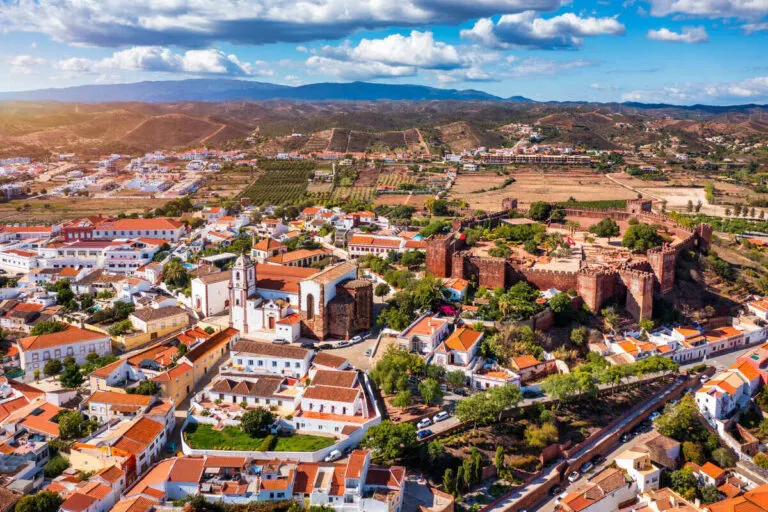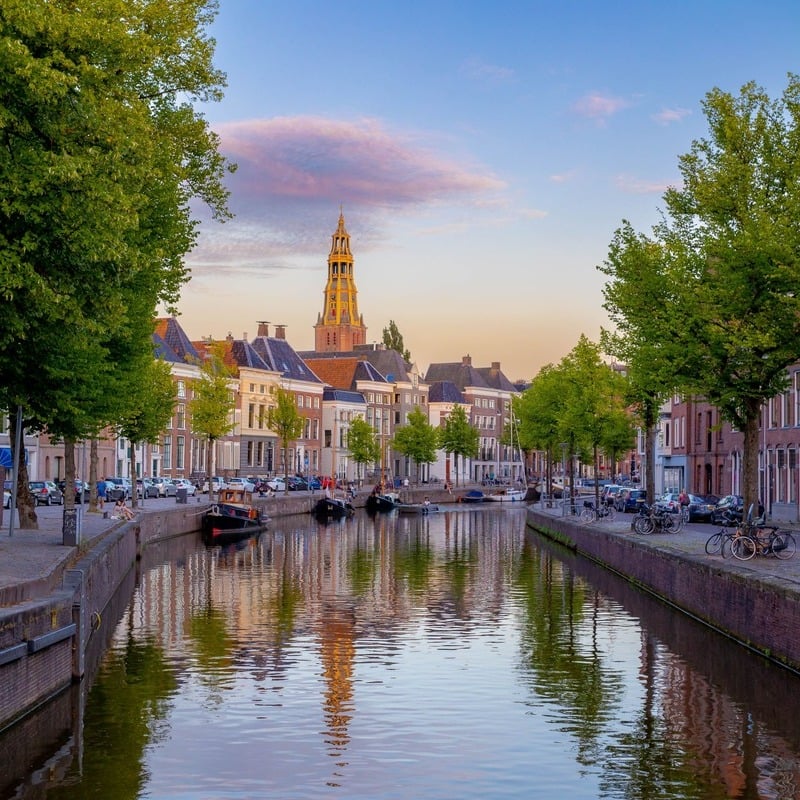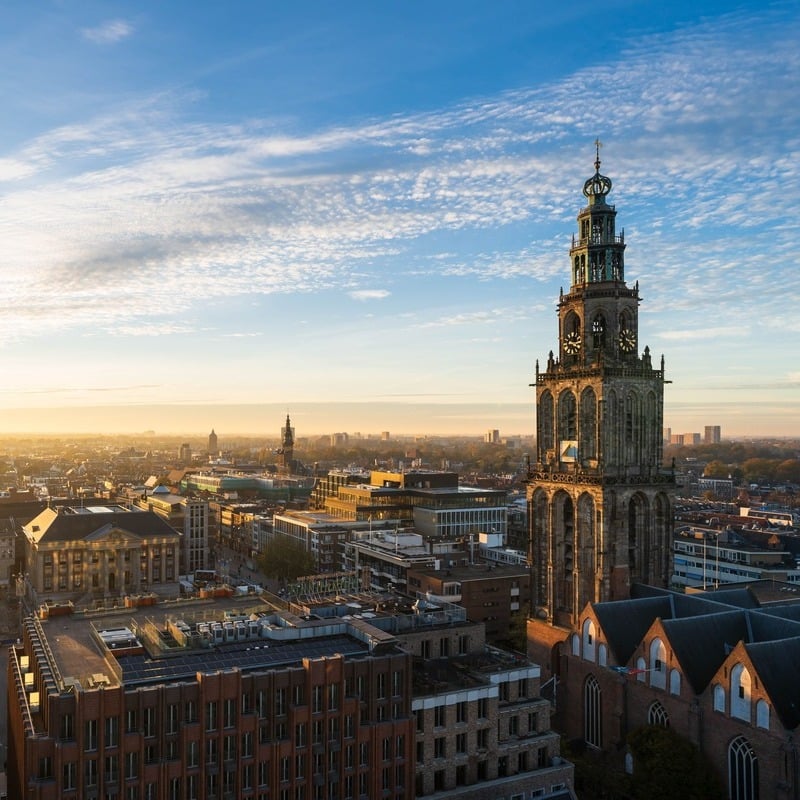If you like medieval castles and ornate architecture, a trip to Europe is probably at the top of your wishlist right now.
However, given the rising crime in parts of Paris and the anti-tourist sentiment in Barcelona, we wouldn’t blame you for being hesitant about booking those flights.
The Ministry of Interior confirmed certain offenses have increased across the French capital, including petty crime, while in Spain’s tried-and-true summer getaway, visitors have been targeted with water pistols and ‘go home’ signs.
We kid you not, there have been demonstrations of over 3,000 people across Barcelona urging tourists to stay away, as reported by NBC News.
Not all of Europe is turning hostile towards guests, and Paris and Barcelona are only two examples, but the fact of the matter is that major European hotspots are the last place you want to be right now if a relaxing cultural getaway is on your mind.
Lucky for the odd culture buff out there, not all of Europe has been overtaken by the crowds, and certainly not these 7 smaller, idyllic towns that just emanate Old World charm:
Silves, Portugal
Headed to Portugal this summer? How about instead of joining the buzzing crowds of Lisbon, you check out the equally-charming Silves in the southern Algarve Coast?
Much like Lisbon, Silves has a hilly Old Town still largely preserved from Moorish times, when large swathes of the Portuguese territory came under Muslim control, and it’s dominated by an imposing fortress that puts the capital’s São Jorge Castle to shame.
The difference between Lisbon and Silves is the latter feels far more peaceful: for starters, it’s a 37,000-people-strong municipality, there’s none of the usual cacophony of cars and rattling trams, and most importantly, far fewer tourists come here.

Other than paying the castle a visit, and checking out the striking-white ‘Se’ Cathedral, we’d recommend you go for a bite to eat at the local Cafe da Se, where they serve delicious Iberian ham sandwiches and freshly-squeezed orange juice, Algarve style, and prices are reasonable.
Treviso, Italy
A largely unknown commune tourists will normally bypass altogether on their way to the neighboring Venice, Treviso is one of Italy’s best-kept secrets, and other than being packed with medieval landmarks, it is also cut through with canals (in classic Veneto fashion).
While the hordes of Instagrammers battle it out among themselves for the perfect shot by the Venice jetties, however, Treviso’s Canale dei Buranelli is (mostly) tourist-free: yes, there’s the odd few wandering about, but not a huge line of people all headed to the same spot.
Other than the postcardy waterfront, Treviso’s central square (Piazza di Signori) is not to be missed, either, flanked by vaulted arcades, where locals gather for the casual cafes and cichetterie, and the monumental Palazzo dei Trecento, built in 1185.

Oh, and if you love tiramisu, perhaps you should know it originated here.
We’re not gonna lie; one of the best tiramisu we’ve ever had was in Le Beccherie, a cozy bakery by Treviso’s canal front that’s racked up a 4.5/5 score on Google: the dessert was rich and creamy, and the views over the scenic waterway were surely worth the considerable wait.
Hall-in-Tyrol, Austria

Everyone knows Austria for the stately Vienna, the alpine beauty that is Salzburg, and, of course, lakeside Hallstatt, which draws millions of visitors every year–much to the dismay of locals who are fed up with tourists–but have you ever heard of the slightly offbeat Hall… in Tyrol?
Located a short 15-minute drive from the city of Innsbruck, it is a traditional Tyrolean village with tall church spires and cobbled lanes set against the backdrop of the Austrian Alps.
It’s somewhere only Innsbruck natives seem to know exists, however, as it’s fairly uncommon to come across fellow English speakers in Hall, and it’s one of the last few traditional Austrian settlements yet to know the spoils of globalization.

You’re likely to have come to Europe to marvel at castles and live out your chivalric fantasies, and the local Hasegg Castle and its landmark tower offering a sweeping view of the surrounding mountains will certainly not disappoint.
Sighisoara, Romania
Here’s one destination you didn’t know you needed on your bucket list: the birthplace of Vlad Tepes, or––wait for it––as he’s gone down in History as… Count Dracula.
Sighisoara is an enchanting small town tucked away deep in Transylvania, a historical region of Romania, and it looks as if it’s been literally plucked out of a Gothic novel, with the spearing tower, the crooked houses and eerie atmosphere only Bram Stoker could conjure up.
Other than its undeniable architectural value––it is one of the best-preserved medieval citadels still standing in Romania today, and to be quite honest, it’s nothing short of stunning––Sighisoara takes the most pride in its Dracula associations.
Though that is disputed by some Historians, it is where Vlad Tepes, Romania’s former bloodthirsty ruler was born in 1431, and if you want to see the infamous house, put this address on your map, and enter at your own risk…
Tin Street No. 1.
Roskilde, Denmark
When you think of Denmark, it’s probably Copenhagen and its colorful waterfront that first comes to mind, but what if we told you there is a smaller city just 19 miles west that is just as charming, and not more, and one that still feels quintessentially Scandinavian?
Copenhagen may have cosmopolitanism as its strength, at least according to some, but Roskilde is staunchly Danish and home to a picture-perfect historic center, revolving around a twin-spired red brick cathedral, the most important in Denmark and a UNESCO World Heritage Site.
The low houses painted in muted tones, lining winding alleyways are storybook material, and if you’re yet to lay eyes on a perfectly-preserved 11th-century war vessel, the local Viking Ship Museum is your chance to do so––they have at least five in exhibition and believe it or not, almost no lines!
Groningen, Netherlands
We know what you’re thinking: you can’t possibly offer an alternative to the iconic canal-traversed Amsterdam and its skinny Northern Mannerist buildings… right?
Well, seeing that a majority of visitors to the Netherlands never even leave the capital, we wouldn’t blame you for never having been properly introduced to Groningen, a mini Amsterdam only two hours north where tourism is minimal in comparison.
Groningen was built with a similar system of waterways––not as extensive, but just as picturesque––and like its famous counterpart, it has a wealth of storied landmarks, like the Martinitoren clock tower and the busy Grote Markt, the city’s central square since the Middle Ages.
Our favorite thing about Groningen is that, not only is it just like Amsterdam, just less busy, but tourist activities are cheaper: a walking tour with a local guide costs only $16.27 to book, and climbing Martinitoren, the leading attraction in town, costs a negligible $6.51.
Tarragona, Spain
If you’re heading to Spain this year, you might want to give Barcelona, Mallorca and most other tourism hotspots a miss, unless you want to find your presence there being protested against.

Instead, try the mid-size Tarragona, on the northeastern Catalan Coast, a historically-charged sea port littered with Roman-era monuments, including a 2nd-century arena overlooking the Mediterranean, and the remains of an ancient Forum that still line the city walls.
Tarragona’s Old Quarter is a hilly maze of ocher-colored buildings and medieval plazas, and a short 10-minute walk away, your much-needed beach time time awaits at Platja del Miracle, a honey-colored sandy strip framed by bright-blue waters.
Locals are usually quite friendly towards visitors, unlike their co-nationals, social attitudes are more relaxed than in larger urban centers, and the food is another obvious highlight:
If you’re craving Mediterranean flavors, El Terrat Restaurant is the place to go.
Credit: Source link








